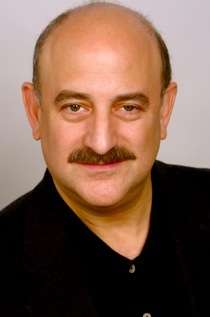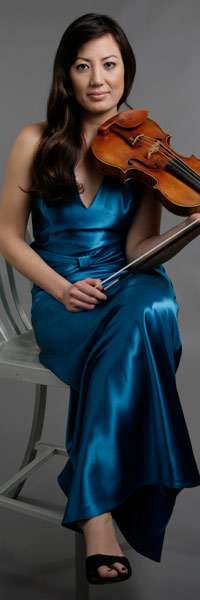|
Back
A Tribue to Paul Sacher New York
Merkin Concert Hall
04/30/2013 -
Paul Sacher Tribute Concert
Igor Stravinsky: Concerto in D for String Orchestra
Margaret Brouwer: Violin Concerto (New York Premiere); Paul Moravec: Morph
Bohuslav Martinù: Double Concerto for Two String Orchestras, Piano and Timpani, H. 271
Michi Wiancko (Violin), Yael Manor (Piano), Francesca Anderegg, Sharon Park (Violins), Marina Sielaff (Viola), Serafim Smigelskiy (Cello), Andrew Funcheon (Percussion)
Orchestra for the Next Century, Gary M. Schneider (Conductor)

G. M. Schneider (© garymschneider.com)
The name Paul Sacher came upon me by accident several years ago, when visiting the Museum Jean Tinguely in Basel, Switzerland. Tinguely’s fascinating mechanisms were the goal, but the Museum was located on Paul Sacher Street, and I found myself alone in Mr. Sacher’s mansion, with thousands of musical manuscripts which he had collected, conducted, and–most of all–commissioned from the greatest composers in Europe.
Obviously being amongst the richest men in the world (heir to a pharmaceutical fortune) was a good beginning. But he used his money wisely, and part of the result was the concert. But not simply for two works which he had commissioned and conducted. But for two new other works which we had not heard before.
No doubt Paul Sacher would appreciate that we should not be content with two composers known so well, but that two–actually three–relatively unknown composers should have our ears. And thanks to a personable, acute very lively conductor, Gary Schneider, that did happen.
Mr. Schneider’s Orchestra for the Next Century is neither chamber nor full (about 40 members), its playing isn’t as sharp as, say, Orpheus or Saint Paul Chamber Orchestra. But they played with passion, studiousness, and made a good show.
The opening was one of Stravinsky’s “Sacher-commissions”, the String Concerto. It is extraordinarily difficult for any string orchestra to play right. Not simply the jagged rhythms and counterpoint. Even more challenging is that this is Stravinsky which is almost humorous. Not the heavy-handed Hindemith humor of a few nights ago, nor the slapstick of his Mavra. But this was light satire of waltzes, of operetta, and it is not easy to catch.
The Orchestra for the Next Century played adequately, but the result was cold, without the faux-freedom demanded here.
Yet in the final work, Martinù’s Double Concerto For Two String Orchestras, Piano and Timpani, they more than rose to the occasion. Mr. Schneider had said this is played too rarely–and he understated the import of the music, written just before the beginning of the Second World War. Unlike so many jocular works of the master, this one is almost agonizing, a relentless almost vicious picture of his own mental state.
His friend Rudolf Firkusný once, told me of Martinù’s emotional depths about the political dealing in his Czechoslovakia, and there was no doubt this music reflected his so-deep feelings about his country. Here, Mr. Schneider and his orchestra, with vivid piano playing by Yael Manor (herself a composer) and subtle timpani by Andrew Funcheon, made this ravishing music live. Too often, Martinù, a composer I personally adore, is playful, beautiful, but somewhat hollow. Here, every measure was hammered out in vibrating agony. It is simply one of the great works of the 20th Century. Mr. Schneider’s dedication to the late Janos Starker was a worthy one.

M. Wiancko (© www.michiwiancko.com)
The new works were interesting enough, though Margaret Brouwer’s Concerto was more notable for the soloist than the music. It is a tricky piece to play, and Michi Wiancko didn’t miss a trick, from the opening cadenza to the other solo work. Ms. Brouwer had written a very competent work, but she outdid herself in the subtlety of the second movement. It began with a haunting, vaguely Celtic theme by Mr. Wiancko, and with each repetition various consorts added their sounds. Very feeling, very touching.
The surprise came after, when Ms. Wiancko was introduced as a composer. Not only that, but a singer with a lovely dark voice. Accompanied mainly by percussionist Andrew Funcheon, playing different sounds on a box, she sung and fiddled in music which went deeply, without the usual antics of modern singers, into music of spectral beauty.
Paul Moravec’s Morph for string orchestra, was composed ten years ago, but was new to this writer, yet a display of his lavish gifts. The title is a play on words, with four concertante solo strings changing and transposing and morphing music by the entire string orchestra. Yet it ended quietly, as a paean to, yes, Morpheus.
The work was complicated, enigmatic, not totally apprehended on first hearing. But Mr. Moravec’s emotional puzzles are always worth hearing over and over again.
Harry Rolnick
|